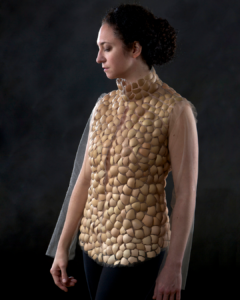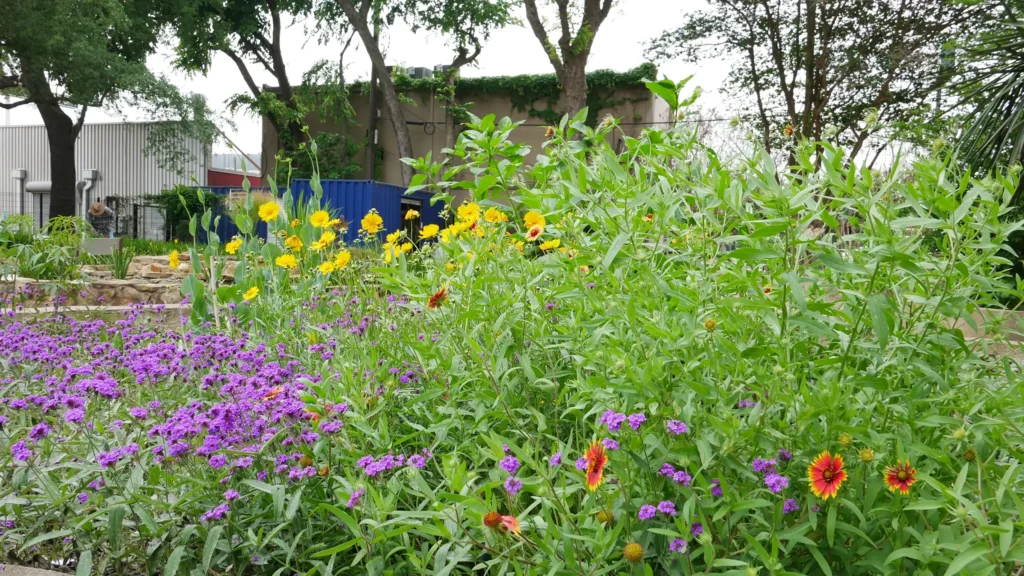So you survived the apocalypse, the holidays, and even New Year’s. What now? Civilization as we know it is still here, which means you can still enjoy the time-honored tradition of enjoying a few drinks while staring at some nice art and then trying to sound intelligent while you try to explain that you like it because it’s blue. And what better way to ring in the new Mayan calendar than an exhibition of ceramics and bonnets at the Houston Center for Contemporary Craft? Okay there’s not really much of a connection there, but I hear the beer will be sponsored by local brewery, Karbach. So if you enjoy finely crafted beer as much as, well, fine crafts then you won’t want to miss this.
On January 25th, HCCC will host a reception for three opening exhibitions. In the large gallery will be the 2013 NCECA Biennial. According to HCCC Curator Anna Walker, the “biennial exhibition will feature a wide range of works from figurative sculptures to functional place settings to performance works. It is an exhibit that happens every two years with the NCECA (National Council on Education for the Ceramic Arts) conference and is meant to showcase the best in contemporary ceramic expression.” The annual conference will be held in March and draws about 4,000-6,000 ceramic artists, educators, collectors, and enthusiasts.
One of the most interesting works promises to be Michael Strand’s restaging of his “Misfit Cup Liberation Project.” Walker explained to FPH that, “Strand asks visitors to bring in a cup from their home and in return for sharing the cup and its story he gives them one of his 100 handmade cups. At the end of the exchange, these ‘misfit’ cups are left in the place of where the handmade cups once rested; it becomes a large wall in tribute to the creative exchange. It’s an important work for promoting the reconsideration of an object we use in our daily lives and providing a platform for us to articulate our relationship to a cup in such a public forum.”
In the Artist Hall will be Roughneck: A Juried ClayHouston Exhibition. One show will be the gritty talents of local artists in what curator Susie Silbert described to FPH as: “An incomplete, but hopefully well-cropped, snapshot of ceramic production in Houston right now, at the end of 2012.” With over 107 works submitted, the field was whittled down and it was up to Silbert to present a unified vision. Silbert “noticed a certain tendency toward roughness—a certain parched-earth quality, perhaps inspired by last year’s terrible drought, that in any case seems to encapsulate the impulse of a large number of the artists working in clay in Houston at this moment.”
While discussing the potential of the medium, Silbert explained to FPH the breadth of attention to surface on display in Roughneck, “whether it’s the rain-soaked smoothness of the screen printed ikat patterns [in] Sarah German’s ‘Blue Ewer Set,’ the optic precision of Terry Hagiwara’s vase ‘Meeting of the Water II,’ or the narrative carving on Marcia Erickson’s ‘Fish and Radiation’ mug—these artists are using the surface of their material to communicate. And this embrace of the emotive possibilities of the material is equally at play in the sculptural contributions to this exhibition.”
If you get there early enough, you will also catch Janice Jakielski talking about her solo exhibition Constructing Solitude. The exhibition abounds with brightly colored bonnets and nostalgic floral images. Jakielski explained that the inspiration for these designs come from many sources, “from the bonnets worn by the Amish and Mennonite communities who sold us produce at the farmers market during my childhood in Pennsylvania to the 1930s hat collection inherited from my eccentric grandmother. I have a bit of an obsession with escapist, depression-era musicals, especially the amazing stage sets of Busby Berkeley and the wardrobe of Ginger Rogers.”
Constructing Solitude explores ways of seeing, hearing, and communicating with the world. There are bonnets that, if worn, would obscure one’s sight and hearing, an interactive site-specific installation involving handmade cylindrical goggles, and perhaps most interestingly, the careful choice of floral imagery can be interpreted by using floriography. “Floriography is the Victorian language of flowers,” Jakielski explained adding, “The giving of flowers and floral arrangements was a means of communication- much like the red rose of today’s Valentine’s Day. I find the range of sentiments in floriography dictionaries fascinating. For example, the begonia carries the meaning of ‘Beware, I am Fanciful!’ and the deep red carnation ‘Alas! For My Poor Heart.’ I enjoy integrating these coded meanings into my designs.”
And of course, now I’ll never be able to buy flowers without thinking about what I’m really saying. So much for liking them because they’re blue.
Roughneck: A Juried ClayHouston Exhibition
Houston Center for Contemporary Craft
Friday, January 25, 5:30 – 8:00 PM
By Michael Pennywark for Free Press Houston.


